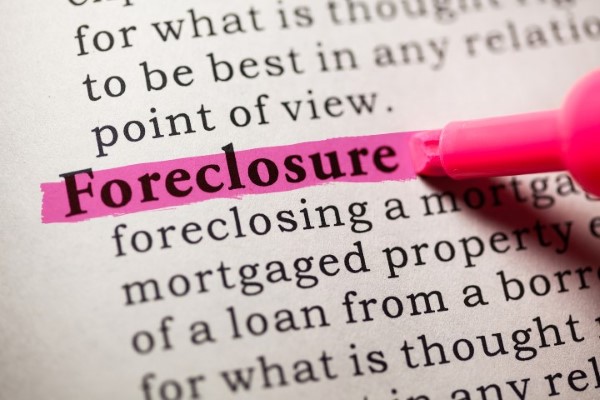
Foreclosure Terms and Definitions
You never want to find yourself in the unenviable position of being in foreclosure. Or, you might be in the market for finding a great deal on a property at a foreclosure auction or a short sale. Either way, it's best to know the relevant foreclosure terminology so you can be prepared for what it means and for next steps.
What is foreclosure? At its most basic, the foreclosure definition is that due to nonpayment of the mortgage, the bank holding the note for your home loan will begin the process of taking possession of the property. When discussing foreclosure, important legal terms will be bandied about, so it is imperative that you are also familiar with foreclosure legal terms. Here is a list of the top 7 commonly used foreclosure definitions, legal terms, and terminology:
Understanding Foreclosure Terms
1. Foreclosure: According to the legal experts at U.S. Foreclosure Law, the definition of foreclosure is "the forced sale of property pledged as security for a debt that is in default." Of course, you must also understand the definition of default, which is another example of common foreclosure terminology.
2. Default: Default is when the borrower does not make the agreed upon mortgage payments on the loan. Once the mortgage goes into default as a result of missing mortgage payments, the foreclosure process will begin.
3. Pre-foreclosure: This is another example of foreclosure terminology that means the foreclosure process has begun. This is usually indicated by the homeowner receiving notification through a Notice of Default (NOD) or a Notice of Sale (NOS). Pre-foreclosure happens before the actual foreclosure takes place.
4. Mortgage: You will probably already be familiar with some foreclosure terminology from having gone through the mortgage process to purchase a property. A mortgage is a loan agreement for buying a home, and the property is held as collateral by the bank. If the homeowner defaults on the loan, the mortgage lender may begin foreclosure proceedings.
5. Short Sale: Another foreclosure legal term that is closely related to pre-foreclosure is a short sale. A lot of people misunderstand this term and think that "short sale" means the bank is selling a foreclosed property and the sale will take a short amount of time to complete. In fact, a short sale means that it is a pre-foreclosure sale in which the property is valued at less than the amount owed on the mortgage, thus the word "short." In the case of a short sale, the mortgage lender has agreed to accept a "short" payment of less than the amount owed on the mortgage through the sale of the property. If you think back to the real estate market crash that took place in 2008, this happened to many homeowners because they bought properties at the top of the market and then ended up being underwater with their mortgages when property values plummeted.
6. Foreclosure Auction: Once a property goes into default and the foreclosure process has begun, the property could be dispatched by the bank through a foreclosure auction. Foreclosure auctions are a great place to find hot real estate deals, but you have a very limited amount of information available about the property. However, depending on the state, homeowners may have what is called the right of redemption, an estate law that allows the homeowner a certain amount of time to pay the defaulted mortgage payments and get the property back.
7. Lien: Another important foreclosure legal term to know is a lien, which means there is a legal claim to the property, such as a second mortgage. Liens can also be applied if there are homeowners association (HOA) dues that are owed, unpaid utility bills, or permits that haven't been cleared. When completing a transaction of a foreclosed property, a property may very well come with several liens that will have to be paid at the time of the transaction. Sometimes these are paid by the previous owner, and sometimes they are paid by the new purchaser.
Now that you are familiar with some of the commonly used foreclosure terminology, you can use the resources at HomeFinder to find a great deal on a foreclosed property, or simply prepare yourself ahead of time to avoid going into foreclosure.
